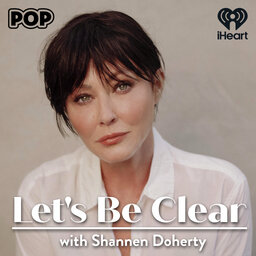Let's Be Clear About Chronic Conditions...with Jennifer Fessler
Real Housewife of New Jersey Jennifer Fessler received a devastating dose of reality when she learned her daughter was diagnosed with Type I diabetes at age 12. Jen reveals the pain of seeing her tween struggle with a life-long condition, and the lack of information about Type I and Type II.
From the shaming she experienced as a parent, to the misinformation about treatments and outcomes, Jen gets real about the danger her daughter faces and how she won't let the disease define her.
In 1 playlist(s)
Let's Be Clear with Shannen Doherty
Let’s Be Clear… a new podcast from Shannen Doherty. The actress will open up like never before in…Social links
Follow podcast
Recent clips

Let's Get Real with Selma Blair and Amanda Kloots
41:24

Let's Find our Second Wind...with Marion Jones
39:09

Let's Find The Prescription for Joy...with Dr. Tiffany Moon
33:00
 Let's Be Clear with Shannen Doherty
Let's Be Clear with Shannen Doherty